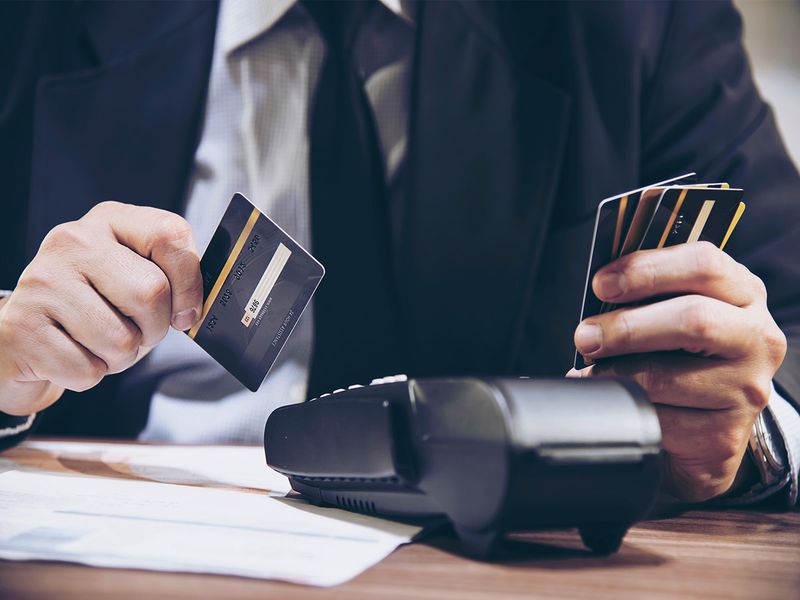
Dubai: You might think you paid your credit card balance off in full, but it’s possible residual interest charges might pop up on your next credit card bill.
Residual interest, also often known as trailing interest, can be a tricky aspect to using a credit card. Even if you think you have paid your balance off in full and you don’t make any other purchases, interest might show up on your next statement.
So, even if you pay your current statement amount in full, your next statement may still show that you still owe accrued interest. However, there are ways to avoid this.
How does residual interest works?
Some credit card issuers calculate interest on a daily basis, not just when your statement is generated – which means that you can accumulate interest on your account after the statement date but before the credit card company receives your payment.
Although the need to calculate residual interest yourself doesn’t arise, given that the credit card company does that always, you can estimate what you will owe each day the account is not paid in full.

Here’s an example assuming an annual percentage rate (APR) of 18 per cent: Suppose you had a significant credit card bill a couple of months ago, and you weren’t able pay it off in full, and carried a balance of Dh1,000 onto your last month’s statement.
Follow these steps:
• Divide your APR by the days in a year. In this case, 18 per cent divided by 365. The result is 0.0493 per cent.
• When you multiply this by your current balance of Dh1,000, the result is 49.3 fils. That is what you add to your balance each day that it goes unpaid.
• So, if your billing cycle begins on the 1st, and you pay off the Dh1,000 statement balance on the 11th, you will be charged an approximate total of Dh4.93 in residual interest on that Dh1,000, by the time your payment is received.
Note : The actual amount of residual interest which shows up on your next statement will be slightly higher since interest is calculated daily and compounds on interest previously charged, but this gives you an idea of what additional amount would be owed.
How residual interest can trip your finances up
Since you won’t see this charge on your current statement, when you pay the statement balance you could mistakenly think your balance is zero and not check your next credit card bill.
This could trigger a late fee which would continue to increase the amount you owe. Another potential issue is that late payments could show up on your credit report, possibly affecting your credit score.
There’s one reliable way to steer clear of this charge: Pay off your credit card in full every month. If you haven’t been doing that, you may be able to call your bank and ask for a payment amount which will cover any residual interest to be billed in future statements and result in your balance truly being Dh0.

Checklist to keep in mind when making credit card payments:
• When making a payment to pay off your statement balance plus any residual interest, make sure you consider any fees for expedited payment. In particular, beware of the fees some card issuers charge for making expedited payments over the phone with a live customer service representative.
• Be aware of the time of day you make your payment. If it’s later than your card issuer’s payment deadline for the day, ask for the payoff amount for the next day. Then make the payment immediately so you don’t forget and so no additional residual interest accumulates after your payment posts.
Although it’s possible to avoid residual interest, before we get to that in detail, first you have to understand how a grace period works.
Keep in mind that the grace period applies only if you pay off your entire statement balance by the due date each month. So if you miss a payment or pay only part of your balance, the grace period expires and you will owe interest on the remaining balance as well as any new purchases you make.
Note : While most cards offer a grace period on purchases, not all do. It’s important to check your card’s terms and conditions to see if a grace period is available.
Do grace periods apply for all credit card transactions?
No. Grace periods typically cover only purchases and do not apply to cash advances. Interest generally starts accruing on cash advances immediately, and the cash advance APR may be different than your purchase APR.
Tip : In order to get the longest grace period on your credit card in UAE, all you need to do is to make your payments on the second of every month. By doing this you will have 30 days before the new billing cycle begins along with 15 days as the grace period which totals up to 45 days.

How can I avoid residual interest on my credit card bills?
There are ways of avoiding residual interest. If your card has a grace period, you can maintain it – and avoid residual interest altogether – by paying off your monthly statement balance in full by the due date every month, like briefly mentioned above.
If your credit card offers them, online access and bill pay make it easier than ever to know exactly what your statement balance is and to pay it off in time.
Some even find it helpful to pay off their card multiple times throughout the month, as smaller payments can be easier to handle than one lump sum. Either way, maintaining your grace period means you shouldn’t have to pay any interest on new purchases at all – including residual interest.
Another way to avoid residual interest is to pay off the entire balance on your card before the statement closing date each month. This is key if you’re already carrying a balance and no longer have a grace period.
So even if you are already accruing interest on the balance, paying it off before the closing date saves you from accruing any residual interest on the balance between that closing date and the due date.
Key takeaway
However, this all may be easier said than done.
To help make sure you can pay at least your statement balance off in full each month and maintain your grace period, monitor your credit card balance regularly, not just when you receive your statement. Also, try to charge only purchases you know you will be able to comfortably pay off within your card’s grace period.
If you do get into a situation where your grace period has expired, work to re-establish it as soon as possible, to avoid related incurred charges from snowballing.








